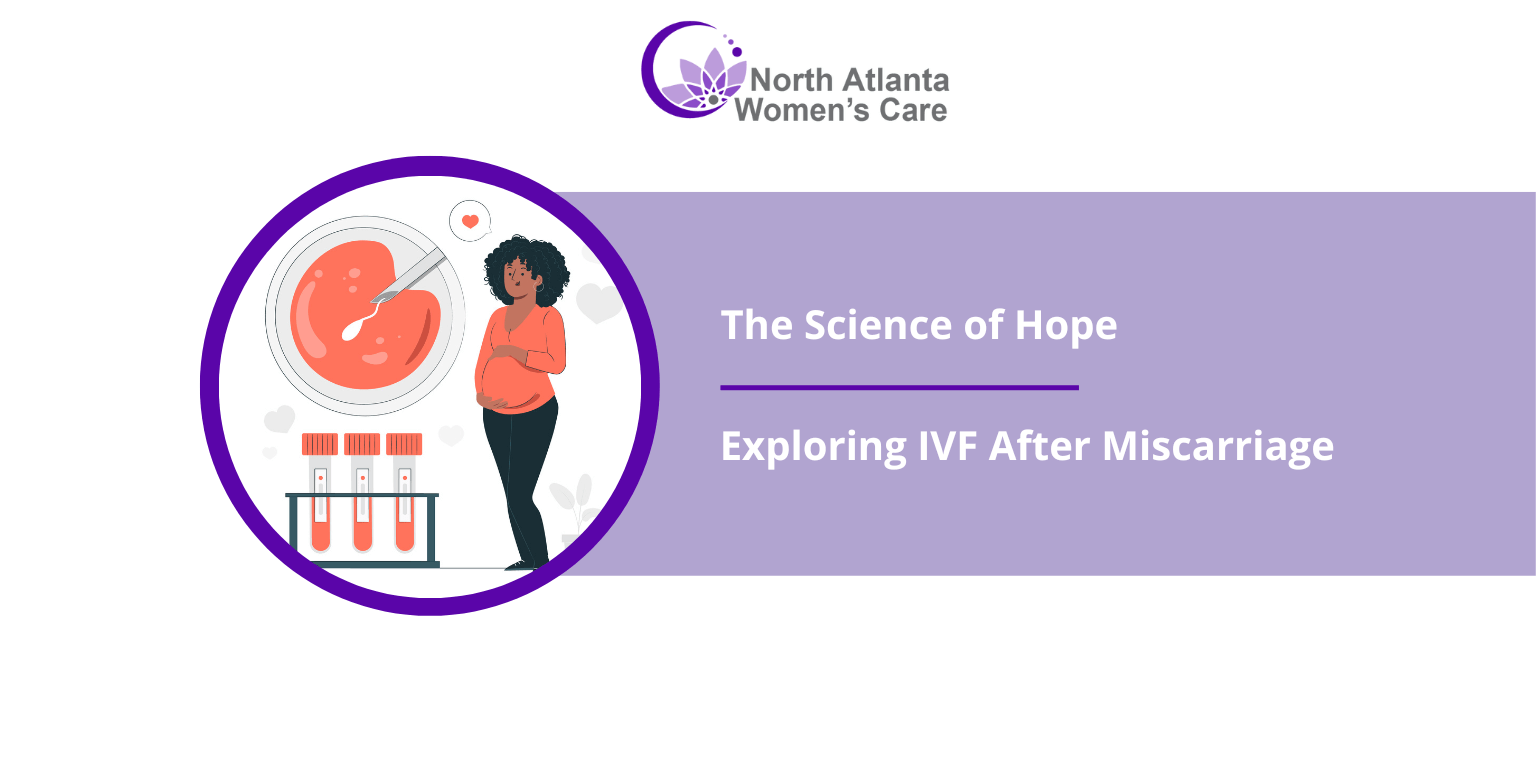The Science of Hope: Exploring IVF After Miscarriage

Parenthood is a journey marked by its twists and turns, and for some, the path might not always be straightforward and include the heartache of miscarriage. According to the World Health Organization (WHO), in the United States, over a million miscarriages occur annually, and nearly 10-15% of known pregnancies end in miscarriage. However, in tough times, hope emerges through methods like In Vitro Fertilization (IVF). IVF is hopeful, but understanding its emotional impact is crucial. It allows couples to navigate the complexities of conceiving after a difficult pregnancy loss.
So, if you are seeking the option of IVF after miscarriage, then this article is for you. Keep reading to explore more about this path forward.
IVF After Miscarriage: Is It the Right Option?
Following a miscarriage, many couples contemplate their options, and IVF emerges as a viable path forward. This technique involves the fertilization of an egg with sperm outside the body in a laboratory setting, allowing for a carefully monitored embryo transfer into the uterus. This method stands as a hopeful solution for those grappling with fertility challenges post-miscarriage.
How Successful Will IVF After Miscarriage Be?
Success rates for IVF after miscarriage vary based on several factors. Research indicates that in some instances, IVF can present higher success rates compared to attempts at natural conception after a miscarriage. Factors such as age, health status, and the underlying cause of previous miscarriages significantly impact success rates.
When Is the Right Time to Start the Process of IVF after Miscarriage?
Deciding on the optimal time to begin IVF after a miscarriage can be sensitive. IVF after miscarriage, how long to wait? While this is the most thought-about question, experts generally recommend emotional healing and physical recovery before commencing another fertility treatment. Most experts advise waiting for one to three menstrual cycles to allow for emotional healing and physical recovery. However, individual timelines may differ, and personalized care should be emphasized during this period.
Why Is IVF Recommended after Miscarriage?
IVF emerges as a recommended option under specific circumstances, such as:
- Recurrent Miscarriages: Couples experiencing recurrent miscarriages may opt for IVF to bypass potential underlying issues affecting natural conception. So, IVF after recurrent miscarriage is highly recommended by experts.
- Age-Related Factors: Advanced maternal age poses challenges to fertility, making IVF a viable option due to decreased fertility and increased miscarriage risks.
- Health Conditions: Certain health conditions, such as endometriosis or polycystic ovary syndrome (PCOS), might necessitate the use of IVF for a controlled conception.
Common Challenges and Complications of IVF after Miscarriage
IVF post-miscarriage involves numerous challenges, some of which are given below.
- Emotional Turmoil: Past miscarriages can intensify emotions during IVF, necessitating additional emotional support.
- Financial Strain: The cost of IVF treatments poses a significant financial burden on couples already grappling with emotional stress.
- Physical Discomfort: IVF procedures involve injections, monitoring, and potential side effects contributing to physical discomfort.
Tips to Be Prepared for IVF after Miscarriage
- Seek Emotional Support: Consider counseling or support groups to navigate the emotional aspects.
- Understand the Process: Educate yourself about the IVF procedure and potential outcomes.
- Financial Planning: Explore insurance coverage and financial options for IVF treatments.
Lifestyle & Dietary Changes to Do for a Successful IVF Procedure
Certain lifestyle adjustments can optimize the chances of a successful IVF procedure, especially for IVF after recurrent miscarriage.
- Nutrient-Rich Diet: Incorporate fertility-boosting nutrients like folate, iron, and antioxidants through a well-balanced diet.
- Regular Exercise: Engage in moderate exercise to maintain a healthy weight and promote overall well-being.
- Stress Management: Adopt stress-relieving practices such as yoga, meditation, or mindfulness to reduce stress levels that can impact fertility.
Final Thoughts
The journey toward parenthood after a miscarriage may seem overwhelming but hope prevails through innovative solutions like IVF. At NAWC, our commitment lies in offering comprehensive fertility support and state-of-the-art IVF treatments. With a compassionate approach and advanced technology, we aim to accompany you on this profound journey towards realizing your dream of parenthood.
Embark on Your Journey to Build a Family with North Atlanta Women's Care
At North Atlanta Women's Care, our IVF service focuses on supporting those seeking parenthood after a miscarriage. We provide compassionate guidance through the IVF process, acknowledging the emotional journey. Our team offers personalized care, utilizing advanced techniques for fertility treatment in Suwanee, GA. Whether considering IVF options or seeking support post-miscarriage, contact us today. We're dedicated to supporting and guiding you toward fulfilling your dream of starting a family.
Content Source: WHO
Comments are closed

